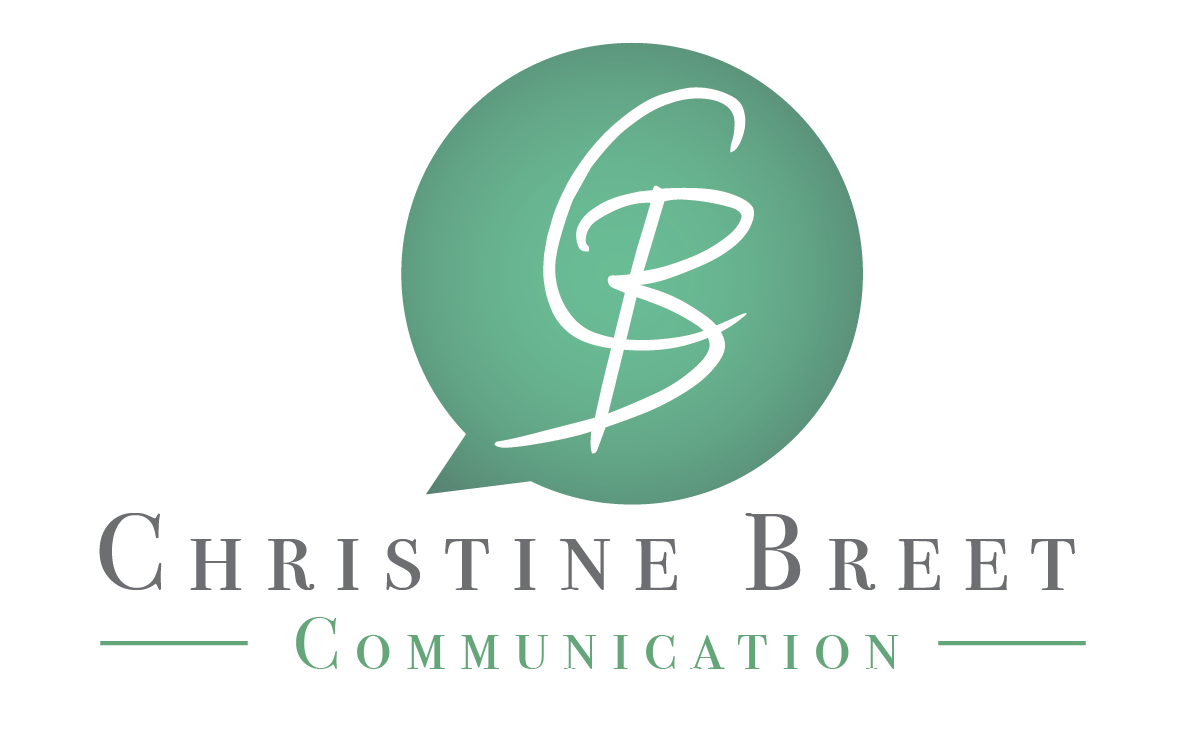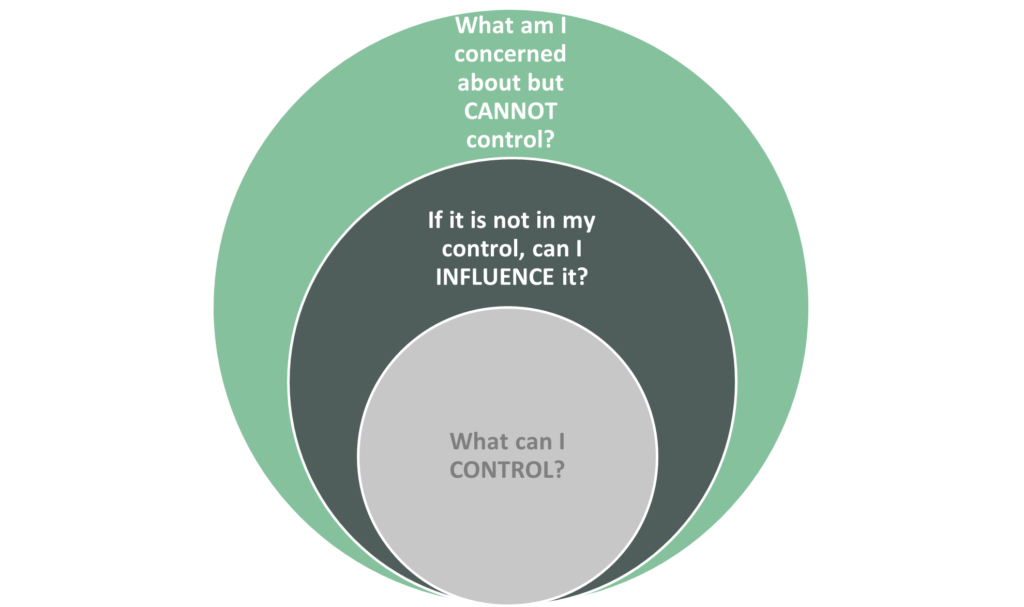Locus of Control
Developed in 1954 by Julian Rotter, the concept of locus of control looks at whether people believe that they have control over what happens to them or whether the outcomes in their lives are based on external forces. The research shows that the higher your internal locus of control is, the happier you’ll be, the more optimistic you’ll be, and the more likely you will be to perform well at your job. The flip side is those that feel like there’s an external locus of control tend to have higher stress, and thus, higher rates of illness. This is a common issue when people feel like change is being thrust upon them, especially during change management programmes. It can lead to an external locus of control.
People sometimes feel overwhelmed by change.
In his book The 7 Habits of Highly Effective People, Stephen Covey articulates this same point by distinguishing between our Circle of Concern (things we care about but can’t control) and our Circle of Influence (things we care about and can impact). The important thing is how different people either react to change or how they choose to respond to change. Those who effectively embrace change, focus their time and energy on things they actually have control over, instead of wasting their time and energy on things they don’t. Usually, when people resist the change process, they are unhappy and feel excluded from the process.
Using the Circle of Influence tool, people can feel more in control of the change that is happening. It is good to recognize that resistance to change is normal, and you’re not alone. This alone can oftentimes help internally manage change. If you focus on the things outside of your control, (e.g., your salary, an office location, your co-workers, etc.) you might feel out of control and resist the change. If you focus on the things you can control (e.g., attitude, getting more information) you will feel more in control and can cope with change better.
Why it is a good tool for teams
Circle of Influence is a great tool for resilience. If anyone feels out of control, you can question all of the reasons why they feel that and see if they can find more agency about them.
For the things they simply cannot control, get them to stop worrying about them. You cannot affect government policy or the weather… so just put those outside and park them. At the very least, what is left is awareness of the factors that are outside their circle of influence.
Often it turns out, they realise they can influence more than they think, or they can change their attitude and their response to them. Even the act of acknowledging this creates some relief.
When you act on your Circle of Influence you can reduce stress levels and increase happiness, because you can initiate and influence change.

